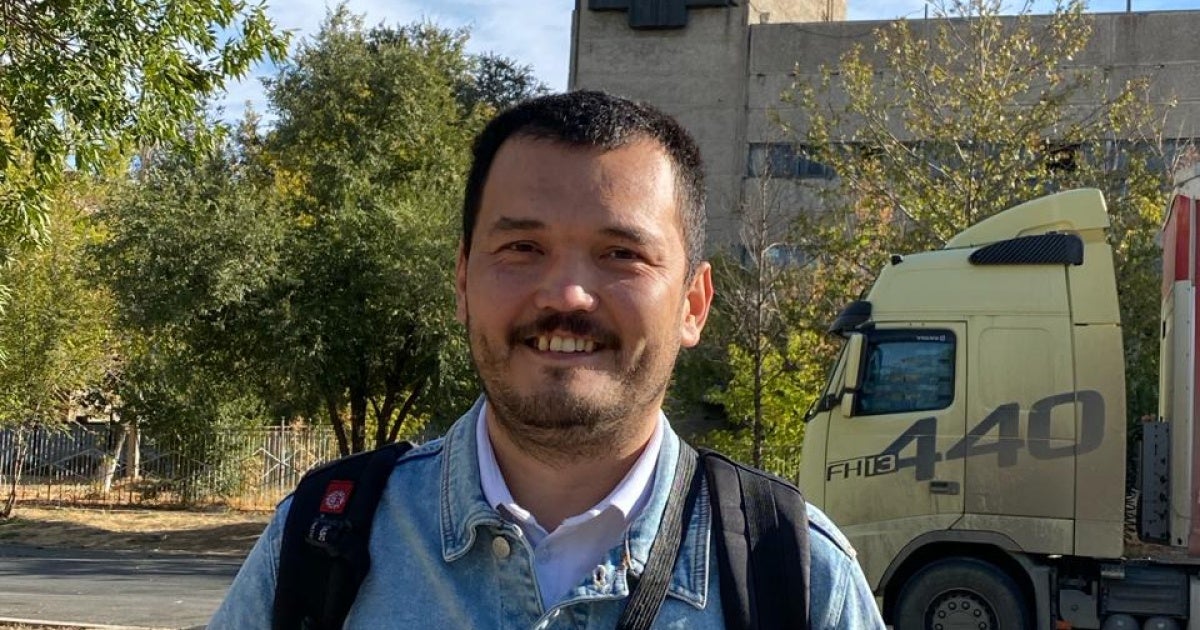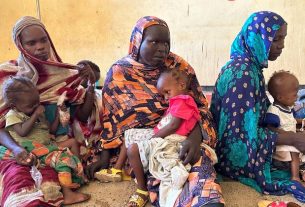(Berlin, February 26, 2024) – Uzbek officials have brought wholly unfounded criminal allegations against an activist who had been living in Kazakhstan, leading to his arrest on February 15, 2024, Human Rights Watch said today. Kazakhstan authorities should reject these unfounded allegations and immediately release the activist, Akylbek Muratov, who uses the surname Muratbai and is in custody pending an official request from Uzbekistan for his extradition.
“The criminal case brought against Muratbai in Uzbekistan is a clear-cut case of retaliation against an outspoken human rights activist,” said Mihra Rittmann, senior Central Asia researcher at Human Rights Watch. “The charges have no merit and should be dropped, and Kazakhstan should release him from custody immediately.”
Muratbai, 35, became an outspoken advocate and rights defender of Karakalpaks, the indigenous population of the autonomous republic of Karakalpakstan in northwestern Uzbekistan, in the wake of the Uzbekistan government’s violent response to protests there in July 2022. Over the last two years, Muratbai, who tweets in both Russian and English, became an important contact on human rights issues in Karakalpakstan for journalists and international rights groups.
Muratbai, a national of Uzbekistan, has been living legally in Kazakhstan for over 10 years. In his various interactions with international actors, including Human Rights Watch, Muratbai has sought to foster better understanding of his native Karakalpakstan.
Police in Almaty detained Muratbai at his home on February 15. On February 17, an Almaty court sanctioned his arrest for 40 days. If, during that time, Kazakh officials receive an extradition request for Muratbai from Uzbekistan, Kazakh law courts could extend his arrest for up to one year, while they consider the request for extradition.
The charges that Uzbekistan has falsely brought against Muratbai include publicly calling for “mass riots” under article 244, part 2b of the Uzbek Criminal Code, which carries a maximum sentence of 10 years in prison, and of “preparing, storing, circulating, or demonstrating materials containing a threat to public security or public order” under article 244-1, part 3g, which carries a maximum 8-year sentence.
Denis Zhivago, a lawyer specializing in refugee and asylum law at the Kazakhstan International Bureau of Human Rights and Rule of Law, who has seen a copy of the indictment, is following the case. He told Human Rights Watch that these charges appear to be in connection with videos Muratbai uploaded or shared on his YouTube account, including video recordings of Karakalpak activists speaking at the Organization for Security and Cooperation in Europe’s Warsaw Human Dimension Conference in early October 2023.
In early October, Uzbek security services apparently intimidated one of Muratbai’s relatives in Navoi, a town in central Uzbekistan. In an October 16 tweet, Muratbai posted, “I declare that no matter how much pressure I am under, I will not stop my activities to disseminate information about repressions against ethnic Karakalpaks in Uzbekistan.”
A week later, Muratbai tweeted that an adviser to the consul general at the Uzbekistan consulate in Almaty had invited him for a talk. In his October 25 tweet, Muratbai said: “Today’s two-hour conversation with the adviser was devoted to the topic of recent threats to my relatives from the Uzbek special services, as well as the general human rights situation in Karakalpakstan. I was asked to ‘soften the tone of my speeches a little so that journalists could not (allegedly) inflate and exaggerate my words.’”
Court documents indicate that Uzbekistan authorities filed charges against Muratbai on November 20.
Muratbai is the sixth Karakalpak activist in the last year and a half to be arrested in Kazakhstan at the behest of authorities in Uzbekistan. After holding the previous five activists pending extradition for 12 months, Kazakh authorities released them between September and November 2023. They were not extradited to Uzbekistan, but neither did Kazakh authorities grant their applications for refugee status.
Muratbai has similarly applied for asylum. On February 23, the department of social services in the Almaty city mayor’s office formally registered Muratbai as a “person seeking asylum,” an official status that should help to protect him from forcible return to Uzbekistan while his claim is under review.
Under the international law principle of nonrefoulement, Kazakhstan should not extradite or otherwise forcibly return a refugee to a place where their lives or freedoms would be threatened, or anyone to a place where they would face a risk of torture. These legal norms are also set out in the 1951 Convention Relating to the Status of Refugees and its 1967 protocol and the Convention against Torture, respectively. Kazakhstan is a party to both. The prohibition on the return of refugees extends to asylum seekers who have not had a full and fair determination of their refugee claims.
Human rights organizations have documented numerous cases of torture and other ill-treatment, and arbitrary detention, of individuals accused of anti-state crimes in Uzbekistan in recent years.
International human rights treaties to which Kazakhstan is party trump any bilateral or regional agreements between Kazakhstan and Uzbekistan, Human Rights Watch said.
“Kazakhstan is bound by international human rights law not to return Muratbai to Uzbekistan, where he faces serious risk of politically motivated persecution,” Rittmann said. “Kazakhstan should free Muratbai immediately, so he doesn’t have to spend another day behind bars on baseless criminal charges.”



